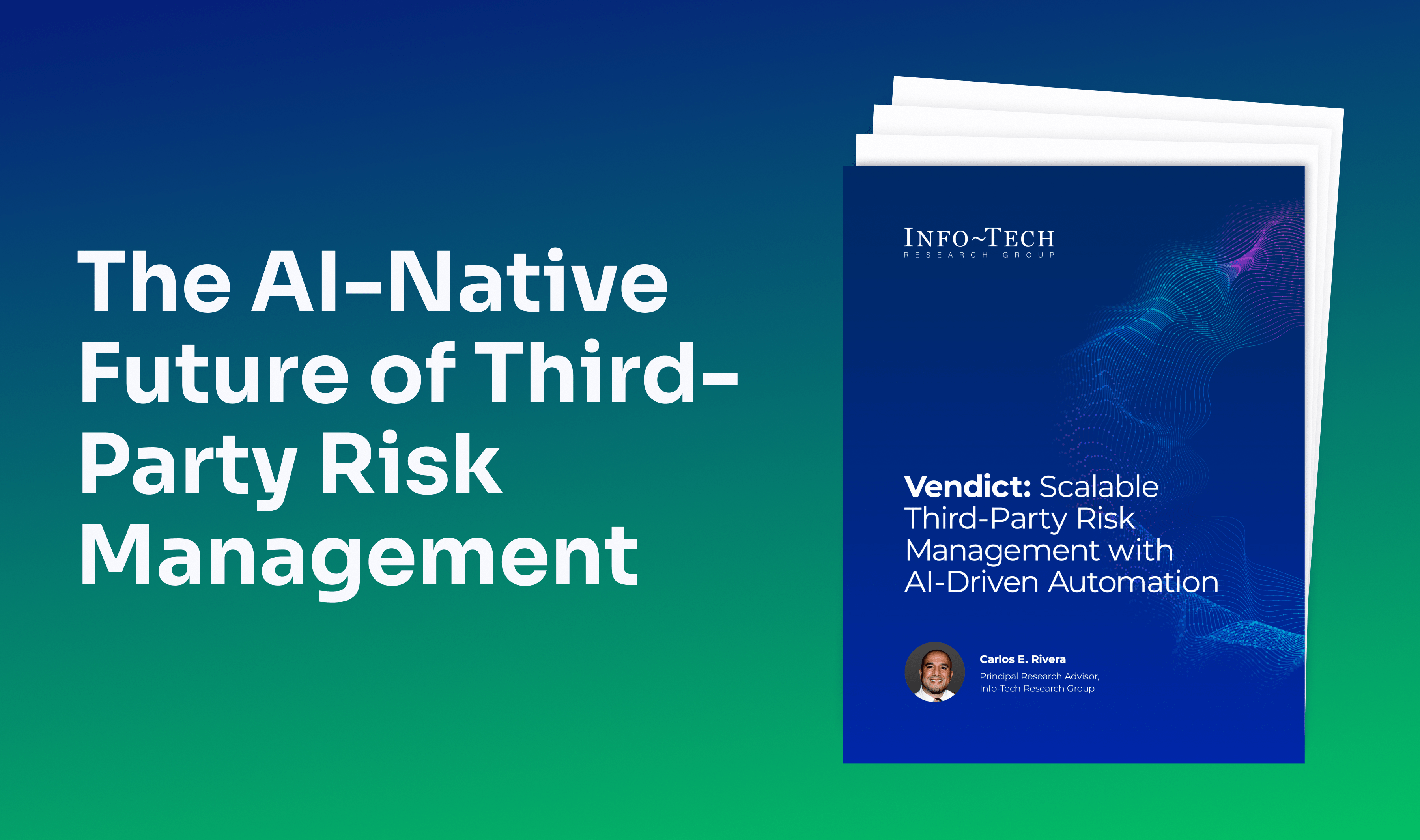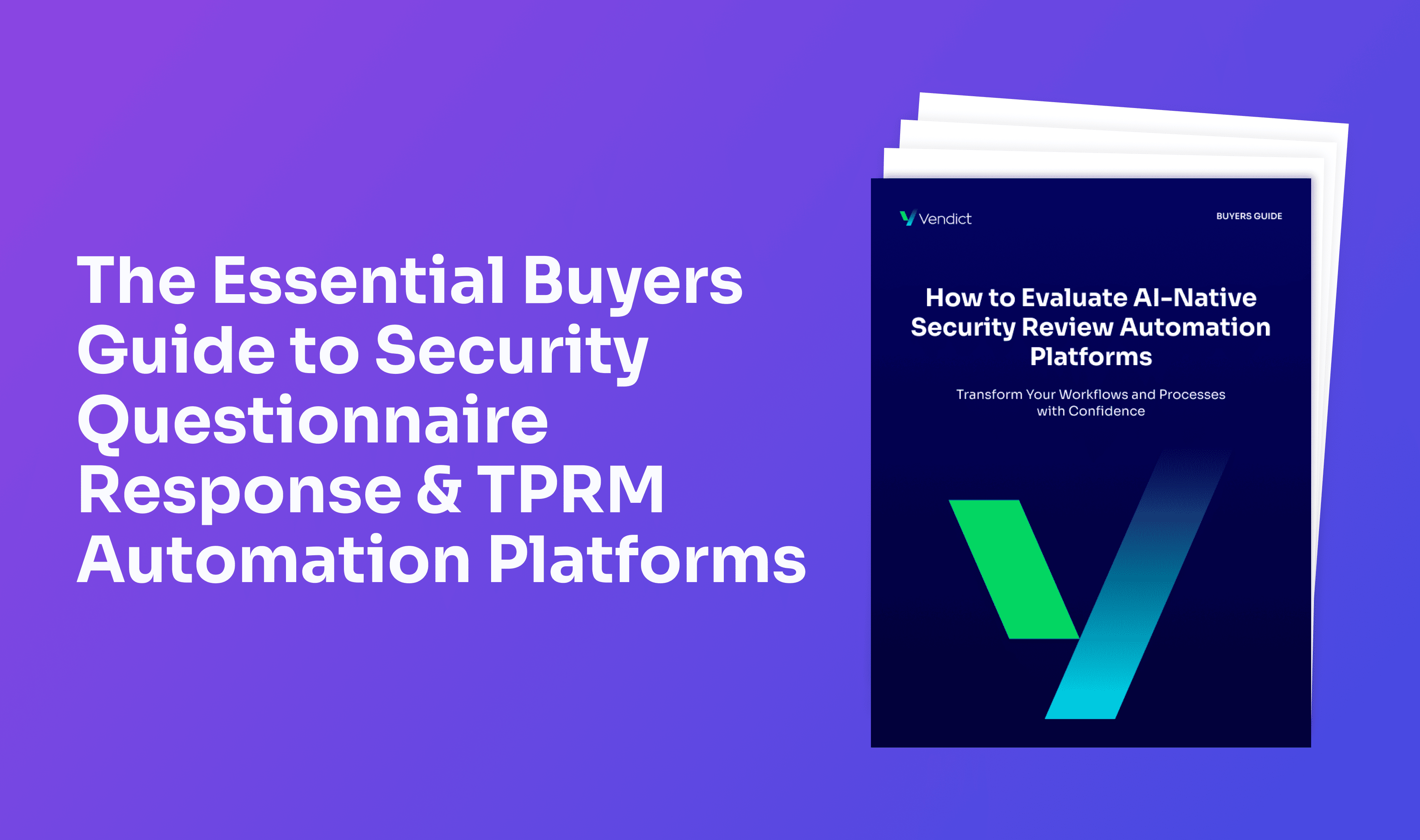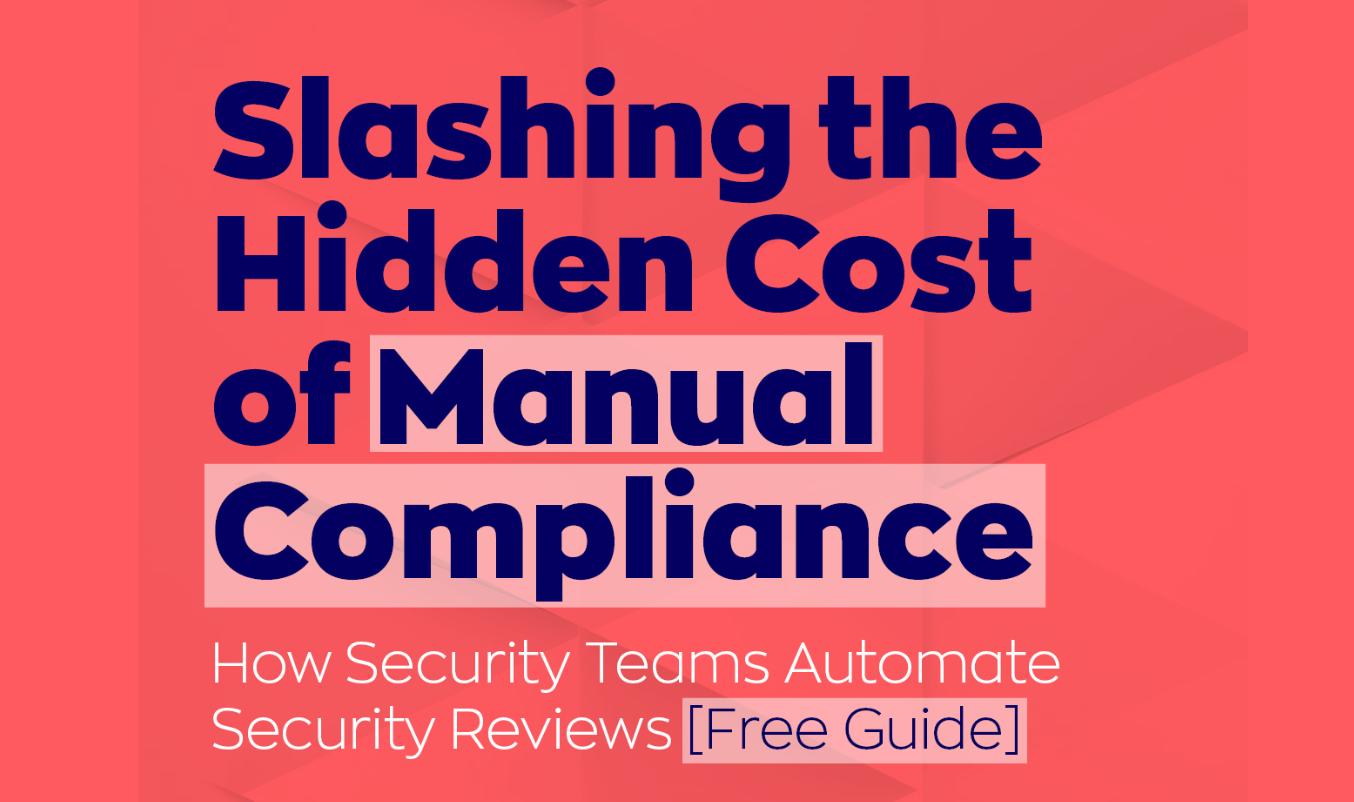The Impact of AI Technology on a Security Questionnaire

Artificial Intelligence has transitioned from science fiction to an indispensable part of modern business, reshaping industries with unparalleled speed and precision.
Nowhere is this transformation more evident than in compliance-heavy sectors, where navigating Governance, Risk, and Compliance (GRC) requirements is a constant challenge.
Among these, security questionnaires—a cornerstone of trust and regulatory adherence—often stand out as a particularly labor-intensive hurdle.
Traditionally, these questionnaires demanded significant manual effort, leading to delays, inconsistencies, and frustration.
AI is changing that. Automating tedious tasks, enhancing accuracy, and fostering trust are turning these once-daunting obstacles into strategic opportunities.
This article delves into how AI revolutionizes compliance processes, turning a persistent bottleneck into a driver of efficiency and growth.
How AI's Evolution Shapes Compliance Today
Artificial Intelligence has grown from humble beginnings into a transformative force shaping industries worldwide. Early AI systems relied on predefined rules, making them rigid and unable to adapt to complex, real-world challenges.
The shift to machine learning marked a turning point, introducing systems that could learn from data and improve over time without explicit extensive re-programming.
Key milestones include the advent of Natural Language Processing (NLP), which enabled AI to understand and contextualize human language, revolutionizing interactions across applications.
Breakthroughs like OpenAI's GPT models, Claude, and Gemini further bridged the gap between AI and human-like comprehension, bringing creativity and nuance to automated systems.
The emerging concept of Artificial General Intelligence (AGI) aims to develop systems capable of performing any intellectual task that a human can, signaling a leap toward versatile and autonomous AI.
Today, AI is embedded in everyday work life. In the healthcare industry, it enhances diagnostics and creates personalized treatment plans. Within the industry, it strengthens fraud detection and automates customer service.
Industries across the board benefit from AI's ability to process vast amounts of data, providing accurate, efficient, and scalable solutions.
These advancements are also reflected in AI's application within compliance, where its ability to automate largely manual, tedious processes and reduce errors is revolutionizing how businesses handle security and regulatory demands.
Why AI Matters in Compliance
As regulations evolve, staying compliant is becoming tougher for organizations. Rules like GDPR, SOC 2, the EU AI Act, and ISO 27001 require strict data security and privacy.
Clients have come to expect more transparency and stronger protections, pushing compliance standards higher than ever.
Artificial Intelligence (AI) offers unique capabilities to address these challenges effectively:
- Efficiency: AI automates repetitive compliance tasks, significantly reducing the time and effort required for manual processes.
- Contextual Understanding: By leveraging natural language processing (NLP), AI systems can precisely interpret and respond to complex regulatory queries, ensuring accurate compliance documentation.
- Scalability: AI solutions can adapt to increasing compliance demands without necessitating proportional resource increases, making them cost-effective and sustainable.
By integrating AI into corporate compliance strategies, organizations can more effectively navigate the complexities of modern regulations, meeting both legal obligations and client expectations.
Challenges of Traditional Security Questionnaires
Since the 1990s, security questionnaires have been a persistent headache for organizations. The manual processes they rely on are time-consuming and demand extensive coordination across teams. This often leads to delays, draining valuable resources that could be directed toward strategic initiatives.
One of the biggest frustrations lies in the sheer volume and redundancy of questions. Security questionnaires can often exceed 500 questions, many overlapping or repetitive.
This overwhelming quantity not only makes the process tedious and inefficient but also increases the likelihood of inconsistent responses, further complicating compliance efforts and prolonging the timeline.
Human error amplifies these challenges. When data entry is done manually, mistakes are inevitable—whether it’s misinterpreting a question, copying outdated information, or failing to track changes. Such errors can misrepresent an organization’s security posture, putting compliance efforts and reputations at risk.
Historically, teams have relied on tools like spreadsheets, emails, and other established systems to manage security questionnaires. While these methods may have worked in the past, they have become less effective as compliance demands have grown more complex.
Without automation and centralized tools, it’s harder for organizations to keep things consistent, accurate, and efficient, turning a once simple task into a major challenge.
Today, older methods of handling security questionnaires just can’t keep up with modern needs. They slow down work, create repetitive tasks, and lead to more mistakes, making it harder for teams to get things done and adding extra stress to their day-to-day operations.
How AI Transforms Security Questionnaires
Artificial Intelligence (AI) has revolutionized the handling of security questionnaires, introducing several key innovations:
- AI-Powered Knowledge Bases: These systems store and retrieve information efficiently, allowing quick access to relevant data.
- Context-Aware Automation: AI can instantly match new questions to existing answers, streamlining the response process.
The impact on businesses is significant:
- Reduced Turnaround Time: Tasks that once took weeks can now be completed in hours, accelerating operations.
- Improved Accuracy: Automation minimizes errors, ensuring compliance standards are consistently met.
- Enhanced Collaboration: Centralized platforms enable seamless access for teams across different locations and time zones.
Specific benefits include:
- Faster Sales Cycles: AI facilitates quicker deal closures by removing compliance bottlenecks.
- Cost Savings: Streamlined processes reduce the need for extensive manual labor, leading to financial efficiencies.
- Efficient GRC & Security Teams: free from time-consuming tasks, they can now work on more critical projects that have a greater impact on the security and safety of their company.
Incorporating AI into security questionnaire management enhances efficiency, strengthens compliance, and supports business growth.
Building Trust in AI for Compliance
Incorporating Artificial Intelligence (AI) into compliance processes necessitates addressing key concerns to build trust:
Data Security: Ensuring Data Security is Paramount
Ensuring data security is paramount. Implementing robust encryption protocols protects sensitive information from unauthorized access.
Adhering to regulatory standards such as GDPR and ISO 27001 demonstrates a commitment to data protection and compliance.
Transparency and Human Oversight: Maintaining Transparency is Crucial
Maintaining transparency in AI operations is crucial. Clarifying AI decision-making processes allows stakeholders to understand and trust the system.
Incorporating human oversight ensures accountability, enabling humans to monitor and intervene in AI-driven processes as necessary.
Reliability and Validation: Supporting Human Expertise
AI should function as a support tool, enhancing human expertise rather than replacing it. This collaborative approach ensures clients retain control over compliance processes while benefiting from AI's efficiency and accuracy. Regular validation of AI outputs against established standards helps maintain reliability and trustworthiness.
Addressing these areas, organizations can effectively build trust in AI-driven compliance solutions by balancing technological innovation with essential human oversight and control.
Real-World Applications and Success Stories
Artificial Intelligence (AI) has significantly enhanced compliance processes across various organizations. Notable examples include:
Apono
Apono, a company specializing in access management, faced challenges with time-consuming security questionnaires. By integrating AI-powered solutions, they streamlined their compliance workflows, reducing the workload by 50%.
Aidoc
Aidoc, a leader in medical imaging AI, encountered delays in its sales cycle due to extensive compliance requirements. Implementing AI-driven tools allowed it to automate responses to security questionnaires, accelerating its sales cycle by over 90%.
Orca Security
Orca Security, a cloud security platform provider, utilized AI to unify and streamline its compliance processes. This integration enabled it to achieve near real-time visibility into its cloud security posture, enhancing efficiency and accuracy in compliance management.
The Future of AI in Security Questionnaires
Artificial Intelligence (AI) is poised to revolutionize security questionnaires further, introducing several key advancements:
Upcoming Trends
- Predictive Analytics for Proactive Compliance: AI systems will anticipate compliance needs, identifying potential issues before they arise, thereby enhancing risk management.
- Dynamic Learning for Regulatory Adaptation: AI will continuously update its knowledge base to align with evolving regulations, ensuring organizations remain compliant without manual intervention.
- Full Automation from Data Input to Submission: The entire process of handling security questionnaires—from data collection to final submission—will be automated, significantly reducing time and resource expenditures.
Broader Implications
Advancements in AI, including Artificial General Intelligence (AGI), hold the potential to transform compliance and related fields by:
- Enhanced Decision-Making: AI systems can provide deeper insights and recommendations, improving strategic planning and operational efficiency.
- Cross-Industry Applications: Automating security questionnaires provides a model for other sectors, streamlining processes such as auditing, reporting, and risk assessment.
While these advancements promise efficiency and innovation, a measured approach is crucial to realize their benefits fully.
Issues to Be Aware Of
While AI offers transformative opportunities, thoughtful implementation is key to maximizing its potential and ensuring long-term success:
- Continued Evolution: AI technology, including advanced solutions like ours, is constantly improving to meet the growing complexity of compliance challenges. This evolution reflects the commitment to refining its capabilities, not a limitation of current technology.
- Human-AI Collaboration: AI is most powerful when complementing human expertise. By supporting teams with accurate, data-driven insights, AI enables professionals to focus on strategic decision-making while maintaining control over compliance processes.
- Responsible Innovation: AI's vast potential should be realized with transparency, respect for privacy, and adherence to ethical practices. These principles ensure trust and accountability while embracing the technology’s benefits.
By focusing on collaboration and responsible integration, AI becomes a strategic partner, empowering organizations to achieve compliance with greater confidence and efficiency.
Conclusion
AI has redefined security questionnaires, turning a traditionally slow, error-prone process into a streamlined, strategic business enabler. By automating repetitive tasks, improving accuracy, and fostering collaboration, AI empowers organizations to meet compliance demands quickly and confidently.
As a valuable tool, AI simplifies compliance and drives business growth by eliminating bottlenecks and building trust with clients. In a world where efficiency and precision are paramount, AI is no longer seen as a luxury for the few—it's a day to day essential for many.
If you're ready to experience the value of AI for compliance firsthand, explore how Vendict's AI-powered solutions can simplify your compliance processes and transform your team’s efficiency.
.png)








.png)
